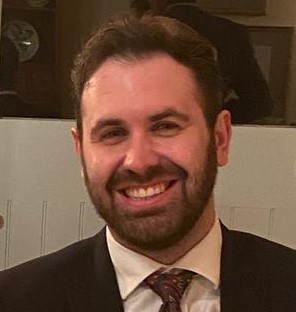_____________________________________________
Welcome to this week’s myHSN Week in Health – a round-up of the biggest health news this week, and what it means for you
_____________________________________________
Implant to prevent Sleep Apnoea
NHS strikes continue – what it means for you
Breakthrough therapy for blood cancer
New strategy to cut down hospital ‘no-shows’
_____________________________________________
Implant to prevent Sleep Apnoea
What?
A new pacemaker-sized device designed to prevent episodes of sleep apnoea has been used in NHS patients for the first time.
Why?
Obstructive sleep apnoea (OSA) describes a condition where sufferers stop breathing whilst sleep, due to an obstruction of their airways. This can lead to debilitating loss of sleep and resultant daytime sleepiness.
This new device tunnels a small wire to a nerve that controls the tongue. When an apnoeic episode occurs, a small pulse is sent to the nerve, drawing the tongue out of the airway. This happens automatically, and the device is turned on by the patient before going to sleep.
How (does it affect you)?
This has been rolled out in one NHS trust but is likely to be expanded nationally. It is suitable for people with moderate to severe OSA, for whom CPAP is not effective. CPAP describes continuous air pressure delivered by a tight-fitting mask to keep the airway open. If you suffer with OSA, ask your GP or sleep specialist, whether this innovation might become available to you.
_____________________________________________
NHS strikes continue – what it means for you
What?
Strikes within the NHS continue to rumble on, as new groups of staff join the picket lines. Physiotherapists are the latest group to strike with one strike taking place in 30 NHS trusts on 26th January. More strike days will follow later in February.
Why?
Health workers continue to strike due to inadequate salaries that fail to keep up with inflation. While the government has offered one-off pay awards to some groups, these have been criticised as remaining below inflation. Notably, physiotherapists in Scotland have accepted an increased pay award, though other groups remain locked in negotiations.
How (does it affect you)?
All striking groups have stated emergency care will take place, broadly as normal, on strike days. With regards to ambulance strikes, less urgent calls will not be prioritised, and patients should be prepared to make their own way to hospitals (if an ambulance is not dispatched).
Elective care will be compromised, and patients should make contact with services, to see if their appointment or operation is to be rearranged. Dialysis and chemotherapy sessions will continue as normal.
_____________________________________________
Breakthrough therapy for blood cancer
Credit: Pexels
What?
CAR-T cell therapy is to be made routinely available for patients with certain types of lymphoma, NICE has announced. The treatment is recognised to increase life expectancy and time spent disease-free in these types of cancer.
Why?
This announcement comes as new data has emerged demonstrating the positive effects of this specialist treatment. To this end, NICE has now approved the treatment to all eligible. Previously a special application was required, lengthening the time before treatment could be initiated.
CAR-T cell therapy involves removing and ‘training’ a patient’s own immune system (T-cells) to find and kill cancer cells in the body. This is currently mostly used in certain forms of blood cancer. There are trials ongoing to see if this treatment can also be used on ‘solid’ tumours e.g. brain tumours.
How (does it affect you)?
If you suffer from large B-cell lymphoma (DLBCL) or primary mediastinal large B-cell lymphoma (PMBCL) that has returned after treatment, you may be eligible for this treatment. Speak to your haematologist to find out if it is the right treatment for you.
_____________________________________________
New strategy to cut down hospital ‘no-shows’
What?
A new ‘catch-up drive’ in the NHS is set to reduce the number of missed or unfilled appointments in hospitals. Patients will be added to ‘short notice cancellation’ lists and reasons behind missed appointments will be addressed. This may include money for travel support, increased text reminders, or implementing patient-led booking services.
Why?
7.8 million appointments go unused each year due to patient non-attendance. This is a vast resource that could be utilised to cut down the growing NHS waiting list. With 4 out of 5 people on the waiting list waiting for an appointment, this move is a way to cut down this number.
How (does it affect you)?
Short notice lists should be introduced in hospitals near you. Call your service to see if you can attend unused appointments. Find out whether your local hospital allows patients to book and manage their on appointments via an app or a website. Finally, read the myHSN article on how to get seen quicker in the NHS!
_____________________________________________
Final call for COVID boosters
Credit: Pexels
What?
The NHS COVID booster programme ends on 12th February 2023. All 16 to 49 year olds who have not received a booster vaccine are asked to attend their local vaccination centre before this date.
Why?
COVID vaccines have reduced the spread of COVID-19 and contributed to the effective end of the COVID pandemic. Though cases continue to spread, the impact has been significantly reduced by rollout of the vaccine. Booster vaccines increase antibody levels in the body and mean COVID is less able to cause serious illness.
This winter campaign is set to finish, with another campaign is being considered for rollout in Spring 2023.
How (does it affect you)?
If you are eligible for a COVID booster vaccine and have not yet received one, 12th February is the last time you can receive one during this campaign. Further doses may become available later in the year.
If you have never received a first or second vaccine, smaller clinics will continue to offer this service.
_____________________________________________
As always, best wishes from myHSN!




